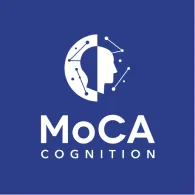Navigating the diagnosis of a cognitive disorder can be daunting, but it also opens up a world of care and research possibilities that promise better management and hope for the future. The recent FDA approval of groundbreaking Alzheimer’s drugs such as Leqembi, and the promising advancements in treatments like Donanemab and AL001, mark a significant turn in our fight against this disease. While these therapies are harbingers of hope, it’s essential to understand that they are currently suited for particular patient groups and are just the start of a new era of potential treatments.
Understanding Your Diagnosis
Firstly, it’s crucial to get a clear explanation of your diagnosis. Educate yourself about the condition using reliable resources. Knowledge is empowering and the foundation of your journey through care and research.
Building Your Care Team
Create a strong support network, involving healthcare providers who specialize in cognitive disorders, family, friends, and possibly a care coordinator who can help manage your healthcare journey.
Creating a Care Plan
A well-thought-out care plan includes structured daily routines, legal planning for the future, and modifications to your living space to ensure safety and accessibility.
Embracing Lifestyle Changes
Adopt a brain-healthy diet, engage in regular physical activity, and keep your brain active with mentally stimulating activities. These lifestyle changes are foundational in managing cognitive health.
Psychological and Emotional Well-being
Join support groups, seek counseling, and practice stress-reduction techniques. Emotional well-being is a critical component of your overall care plan.
Engaging with Research and Clinical Trials
Stay informed on the latest research and consider participating in clinical trials. These can offer access to new treatments and contribute to the advancement of science.
New Frontiers in Treatment
With the FDA’s approval of new treatments, there’s a sense of optimism. These drugs, like Leqembi and Donanemab, target amyloid beta plaques and are most effective in the early stages of Alzheimer’s disease. They are administered intravenously and require biomarker (brain scan) evidence of amyloid pathology for the patient to qualify.
These treatments represent the beginning of an evolving landscape in Alzheimer’s care that heralds a future where more effective and inclusive options could become available for a broader spectrum of patients. The administration and qualification criteria for these drugs vary, focusing on early-stage patients and involving diagnostic tests to confirm amyloid pathology. As research progresses, these criteria may expand, making treatments accessible to more patients.
Planning for the Future
Engage in advance care planning, financial planning, and explore community resources. It’s also vital to look at the role of caregivers, emphasizing their education, self-care, and the importance of respite care.
Advocacy and Involvement
Become an advocate for cognitive health research, engage in community events, and participate in legislative advocacy. Your involvement can drive change and support policies that benefit cognitive health research and care.
Each step on this path is a stride towards hope and resilience. With informed confidence and collective strength, we can approach our cognitive future, contributing to both personal well-being and the broader field of cognitive health research.
